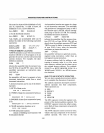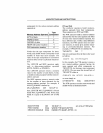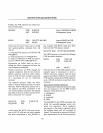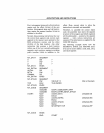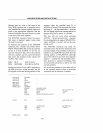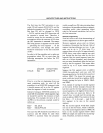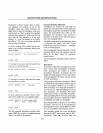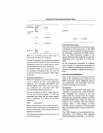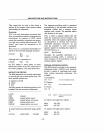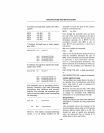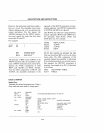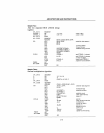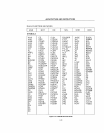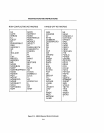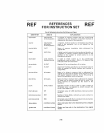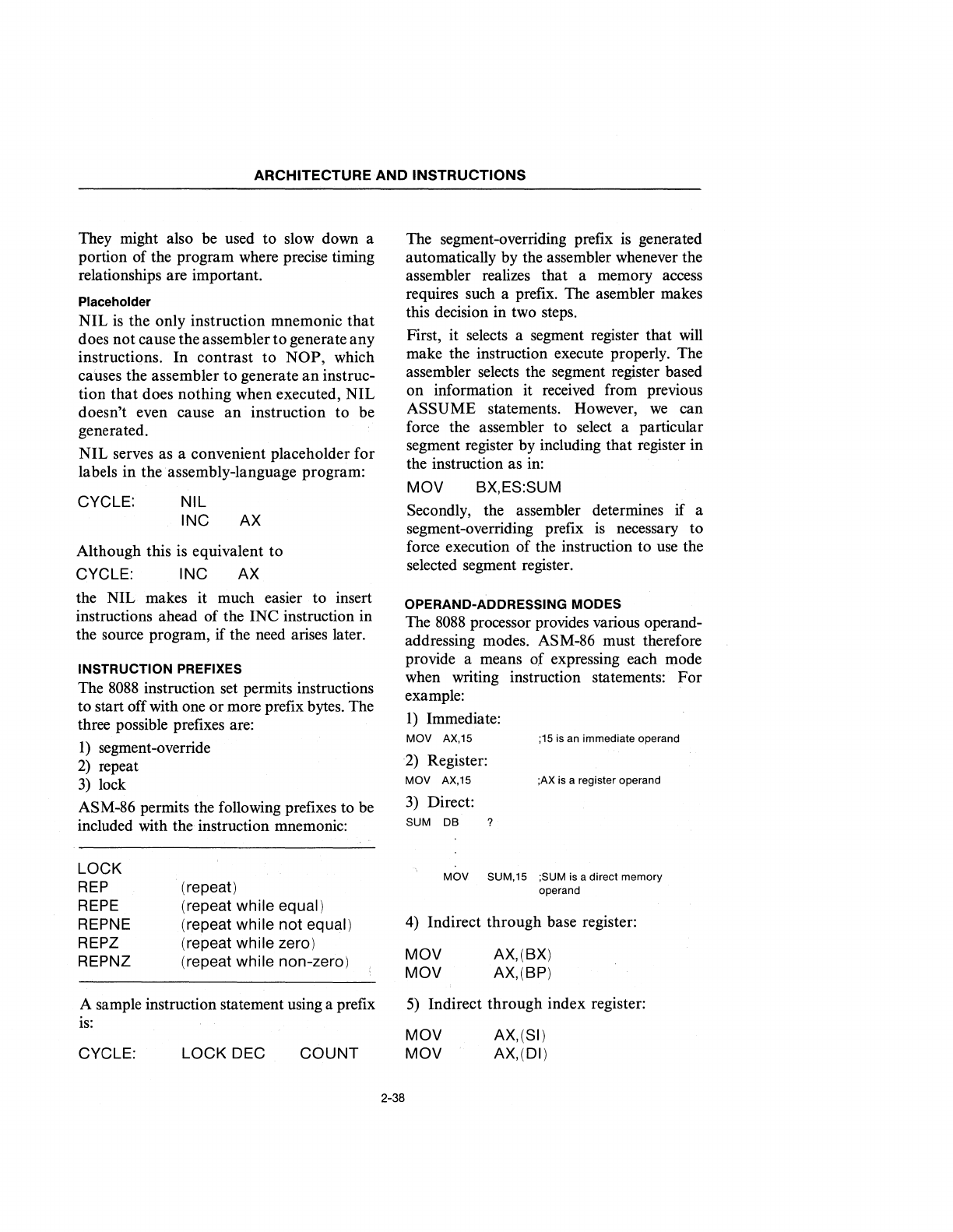
ARCHITECTURE AND INSTRUCTIONS
They might also be used
to
slow down a
portion
of
the program where precise timing
relationships are important.
Placeholder
NIL
is the only
instruction
mnemonic
that
does
not
cause the assembler
to
generate
any
instructions.
In
contrast
to
NOP,
which
causes the assembler
to
generate
an
instruc-
tion
that
does
nothing
when executed,
NIL
doesn't even cause
an
instruction
to
be
generated.
NIL
serves as a convenient placeholder
for
labels
in
the assembly-language program:
CYCLE: NIL
INC
AX
Although
this is equivalent
to
CYCLE: INC AX
the
NIL
makes
it
much easier to insert
instructions ahead
of
the
INC
instruction in
the source program,
if
the need arises later.
INSTRUCTION
PREFIXES
The 8088 instruction set permits instructions
to start off with one
or
more prefix bytes. The
three possible prefixes are:
1)
segment-override
2) repeat
3) lock
ASM-86 permits the following prefixes to be
included with the instruction mnemonic:
LOCK
REP
REPE
REPNE
REPZ
REPNZ
(repeat)
(repeat
while equal)
(repeat while not equal)
(repeat while zero)
(repeat wh i
Ie
non-zero)
A sample instruction statement using a prefix
is:
CYCLE:
LOCK
DEC
COUNT
The segment-overriding prefix
is
generated
automatically
by
the assembler whenever the
assembler realizes
that
a memory access
requires such a prefix. The asembler makes
this decision in two steps.
First, it selects a segment register
that
will
make the instruction execute properly. The
assembler selects the segment register based
on
information it received from previous
ASSUME
statements. However,
we
can
force the assembler to select a particular
segment register by including
that
register
in
the instruction as in:
MOV BX,ES:SUM
Secondly, the assembler determines
if
a
segment-overriding prefix is necessary to
force execution
of
the instruction to use the
selected segment register.
OPERAND-ADDRESSING MODES
The 8088 processor provides various operand-
addressing modes.
ASM-86 must therefore
provide a means
of
expressing each mode
when writing instruction statements:
For
example:
1)
Immediate:
MOV AX,15
2)
Register:
;15
is an immediate operand
2-38
MOV AX,15 ;AX is a register operand
3) Direct:
SUM DB ?
MOV SUM,15 ;SUM is a direct memory
operand
4)
Indirect
through
base register:
MOV
MOV
AX,(BX)
AX,(BP)
5)
Indirect
through
index register:
MOV
MOV
AX,(SI)
AX,(DI)



